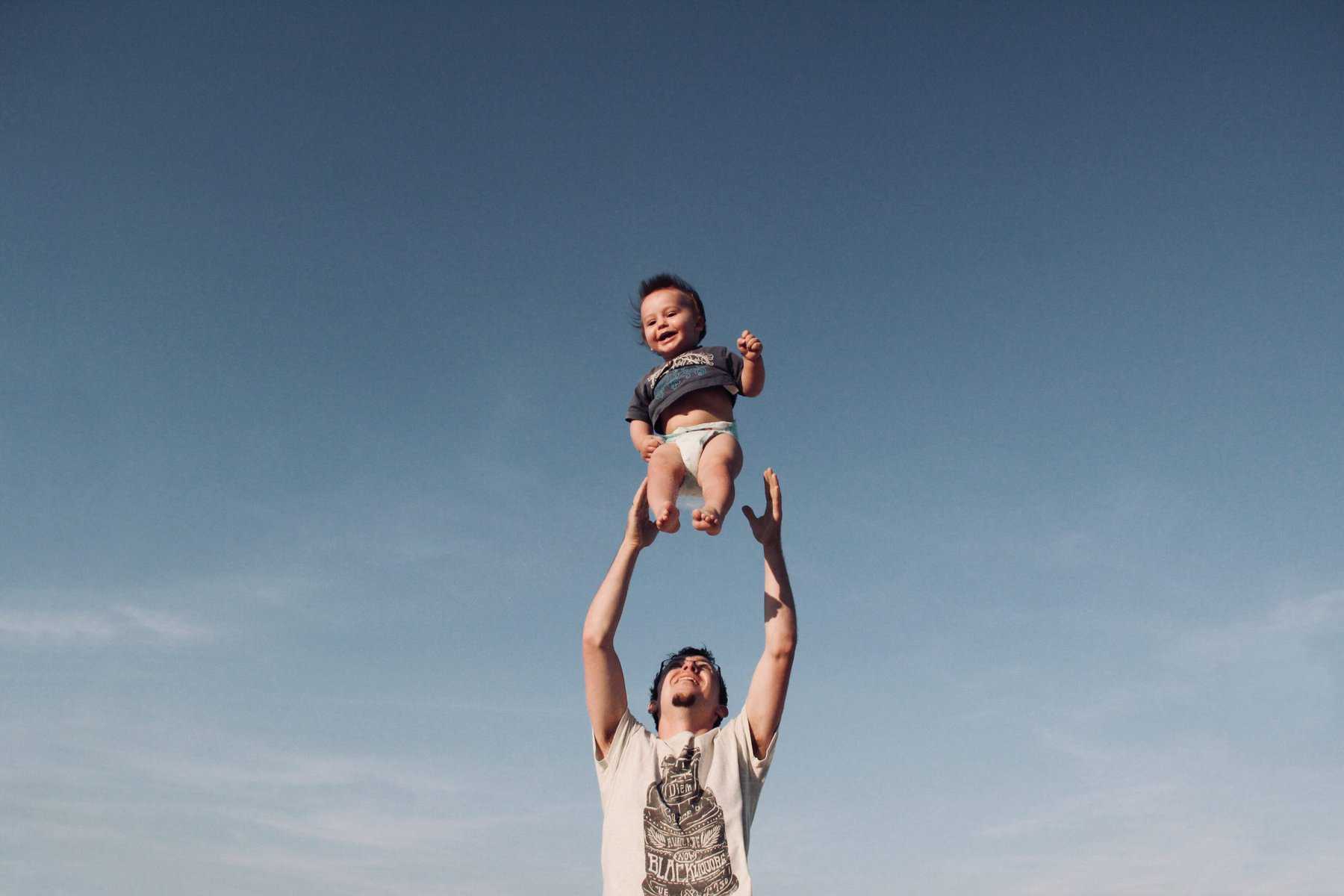In regards to stages of parenting, the general consensus boils down to the fact that the stage you’re in right now is usually the most difficult one.
How come?
Well, when your child is a baby, you probably wish they could do more things, right?
Every little breakthrough fills you with joy.
However, when their progress amounts to opening doors, running away, and disobeying your rules, the freedom you wished for becomes a headache.
That said, all stages of parenting present their own challenges.
On top of that, everything varies from one child to the next.
For some parents, the teenage years prove the most difficult phase.
All of these challenges, however, have their own rewards, as well. By understanding what lies ahead, you can prepare for the journey accordingly.
It’s Ellen Galinsky who defined six stages of parenting that correspond to your child’s development. From pregnancy to adulthood, parenting through the phases calls for flexibility, the constant adaptation of parenting strategies.
In the article that follows, we will briefly define and examine these stages of parenthood to help you refine your parenting styles and techniques.
Naturally, every child is different, so you’re encouraged to trust your intuition. You know your child best. Nevertheless, it helps to expand your parenting knowledge, to sharpen your observation skills and to be a good parent.
The Six Stages of Parenting

The growth of your child necessitates adaptability.
The parenting techniques you apply must vary through the phases.
What does that mean, actually? Well, it means that you should avoid treating your child as a baby when they become a toddler. Equally, when preschool begins, your approach changes again and again until they enter adulthood.
Many parents make the mistake of always treating their child like a baby.
While it’s noble to be protective, it’s your responsibility to ensure your child’s growth. By recognizing the six stages of parenting, you visualize a clear outline of when exactly you should seek to alter and evolve your parenting style.
Nevertheless, every child matures at their own pace.
So, age isn’t the only factor at play. You have to observe your child.
If you have more than one child and they vary in age, it gets a little bit complicated, because you have to apply multiple parenting styles at once.
As such, the stages of parenting are not a bulletproof guide as to how you should raise your children. Instead, it offers guidance and direction to help you determine your parenting style as you go through the phases.
If this is your first baby, this knowledge prepares you for the wonderful journey ahead. However, if you have already raised one kid, you may be surprised by how differently the journey goes this time, since every child is different.
With that in mind, let’s start by defining the six stages of parenting.
Stage One: Image-making

The first parenting stage revolves around preparation.
During pregnancy, you spend a lot of time thinking about your baby. As a result, parents wonder about the baby’s appearance and features. Therefore, they create a sort of image about how their baby is going to look like.
You may also experience abnormal levels of stress.
After all, a baby changes everything. Naturally, a baby is a blessing, but what about responsibilities? What about your career? All these thoughts can be incredibly overwhelming. It helps to create a functional support group.
You want to support your partner and to give support in return.
You likely spend a lot of your time preparing for the baby, reading books, articles and watching videos, anything that can help you feel ready.
Nevertheless, as always, it’s an experience that matters most.
Until your precious baby arrives, you may not feel completely confident and that’s all right. Be patient with yourself. Don’t be too hard on yourself.
Try to let go of any ideas you might have conceived of what parenting is going to feel. Yes, this phase gets a little bit philosophical, but overthinking things ahead of time only makes you more stressful, which impacts your pregnancy.
For now, focus on yourself. Work on your mental fortitude.
Enjoy the fulfillment of pregnancy.
Stage Two: Nurturing

The second stage of parenting begins at birth.
You’ve weathered the storm and finally you get to see your little angel.
What happens next? Well, parenting through the nurturing phase takes a lot of composure. This period lasts up to two years. During this time, parents work overtime to care for their newborn while creating a meaningful connection.
The primary goal behind this stage of parenting lies in attachment.
In the past stage, you may have imagined your baby in a certain way. Undoubtedly, the baby popped up rather differently than how you have conceived them inside your mind. You may not even feel like a parent yet.
That’s why this period encourages you to take things slow.
Allow yourself the freedom to experience the beginning of parenthood.
Embrace your baby. Build attachment. Build yourself, as well. While it’s your baby’s first time experiencing the world, the same could be said for you, because your world has just turned upside down. Give yourself time to adjust.
Don’t expect to know everything right from the start.
Don’t expect to have all the answers.
Instead, enjoy the journey and embrace the responsibility. Unleash your inner caretaker and allow parenthood to fill you with joy, happiness and meaning.
Keep adjusting your parenting style as you go through the stages of parenting.
Stage Three: Authority

All stages of parenting define a certain time period.
The third stage, authority, begins after year two and lasts until year five.
What can you expect during this stage of parenting?
By now, your little baby is a baby no more. Throughout this period, you will witness your child becoming more rebellious as they exit the toddler phase and become a preschooler. Expect to wage a power struggle with your child.
During the third stage of parenting, children test their parents in clever ways. They want to outsmart you. Don’t underestimate their cunning. It’s your job to establish boundaries in your family and to exert authority over them.
You want your child to follow certain rules.
Most of these rules exist to ensure your child’s safety. However, a preschooler doesn’t care for safety all that much. They feel ready to take on the world.
So, you must be very creative about protecting your child from danger during this time. Instead of pressuring your child to obey rules, guide them to the right decisions with efficient parenting. You want them to understand, not to obey.
Parenting through the phases can be tricky. You have to keep refreshing your tactics constantly if you want to stay on top of things. That’s why it helps to recognize the different stages of parenting, so that you can adequately adapt.
Make sure that your child learns the consequences during this phase.
Don’t protect them to the point where they can’t safely mess up. In fact, you want your child to mess up sometimes, so that they may learn from their mistakes, so that they may learn that every action carries consequences.
Stage Four: Interpretive

After five years, a new chapter begins. That’s when children truly begin to experience life outside of their family. As a parent, this can be challenging because you have to let go of your child to a certain degree.
The fourth stage of parenting begins when children enter preschool. This period lasts for many years. In fact, it lasts until children enter adolescence.
During this stage of parenting, you have to be extremely interpretative.
What does that mean? Well, you no longer have full control over what your child experiences. To a degree, your child has to face the world on their own.
That means dealing with peer pressure and maybe even bullying.
Nevertheless, despite how drastically their life suddenly changes, you remain their primary source of guidance. As such, it falls to you to identify your child’s strengths and weaknesses, to answer their questions and provide direction.
You have the knowledge necessary to help them navigate social situations even if you’re not there. Sometimes, however, your child may not tell you the whole truth. That’s why, as a parent, you have to stay really observant.
Learn to recognize when your child is struggling or facing problems, so that you may intervene. Stay present. Keep asking questions and being there for them.
Stage Five: Interdependent

More intense and often confusing life changes transpire as children enter adolescence. This period provides new and unique challenges for parents.
Relationships in the family can get strained and tested as children embrace their newfound independence. With so much freedom and so much desire for life, your child may seek to spend most of their time away from home.
Everyone knows how rebellious teenagers can get.
Often, they disregard your safety concerns. Often, you have disagreements. So, the key takeaway from this stage of parenting lies in communication.
What we find helps during this time is to reflect back on your own teenage years. Remember how you felt. Naturally, as a parent, you have a strong desire to protect your child, but you may feel powerless during this trying period.
Sometimes, your child has to make mistakes themselves.
Be respectful. Acknowledge your child’s independence. Treating them as a toddler conveys a lack of understanding. So, make sure that you start treating your child as a grown person so that you may develop a trusting relationship.
Be willing to negotiate, as well. Don’t let go of all authority just yet.
Despite their rebellious phase, your child still depends on you. You’re their safety net. Loosen up some of the rules, but don’t cease to maintain them.
Stage Six: Departure

The sixth and final stage of parenting implies departure.
At this time, we encourage you to look back on the journey as a whole, but not because the journey ends, but because a new and exciting chapter begins.
During this time, parents have to recognize their child’s independence. They have reached adulthood. From here on out, they’re ready to take on the world.
However, departure does not, in fact, imply that your child is going to physically leave your home. It only means that they’re ready to take control of their life, to pursue their own growth and development as a fully grown individual.
What happens now? Well, your child is always going to be your baby.
Even though you have reached the last stage of parenting, you’re still a parent. Above all else, you still remain a family. However, your relationship now gains a new perspective, because now they have to spread their wings and soar.
For one last time, you have to redefine what it means to be a parent.
Although you’re no longer the center of their life, your home still remains their home. Treat each other as equals. Give your child the freedom they deserve, knowing that you have taught them well and prepared them for the world.
A new chapter begins for you, as well.
Make sure to maintain a strong and healthy relationship with your child, regardless if they stay at home or decide to move out. After all, they may choose to live on the other side of the planet, but they forever remain in your heart.
In Conclusion

The stages of parenting teach us that parents have to be flexible.
With so many changes and developments going on in your child’s life, the only way you can stay on top of things is by remaining fluid with your strategies.
What works for your baby isn’t going to work when they become a toddler.
Therefore, understanding the stages of parenting allows you to determine what phase you’re in and what’s coming up. However, it still falls to you to remain observant, because each and every child progresses at their own pace.
The stages of parenting show a time period that defines when you should alter your parenting approach. Yet, a lot of additional factors come into play.
Consider your child’s personality. Consider their strengths, their weaknesses.
Also, it’s important that parents work together. You can’t have one parent teaching in one way, while the other teaches in a different way. Get on the same page to ensure what’s best for your child in order to see them thrive.
Consult the stages of parenting as defined by Ellen Galinsky to help you craft ideal and flexible parenting strategies, but pay attention to your intuition, too.
After all, you know your child better than anyone else.

Mother of three and a primary school teacher. I’ve always loved being around children and helping them, so I chose my path as a teacher. It is sometimes hectic with three children, but I am 100 percent into it and wouldn’t change it for anything in the world.


Which Parenting Style Is Most Encouraged In Modern America? • Mama Bean Parenting
Tuesday 18th of April 2023
[…] If you want to create the perfect balance between parenting styles, you should explore the stages of parenting. […]
How to Weigh Your Baby at Home • Mama Bean Parenting
Monday 17th of April 2023
[…] – there’s so many of them. It’s hard to keep track. Every day brings something new, and takes away from your […]
Top 20 Single Mom Songs • Mama Bean Parenting
Friday 31st of March 2023
[…] Alicia Keys sings about the hardships women go through. The lyrics don’t relate directly to parenting a baby alone, but the words still resonate with single […]
Do Car Seat Bases Expire? • Mama Bean Parenting
Monday 20th of March 2023
[…] That’s why we’re here to inform and prepare you for the journey of parenthood. […]
25 Heartwarming One Month Old Baby Quotes • Mama Bean Parenting
Friday 3rd of February 2023
[…] reasons, and are closely tied to the developmental milestones of a one month old baby. From pregnancy to parenthood, there’s so much going on and it can be difficult for parents to just enjoy the […]